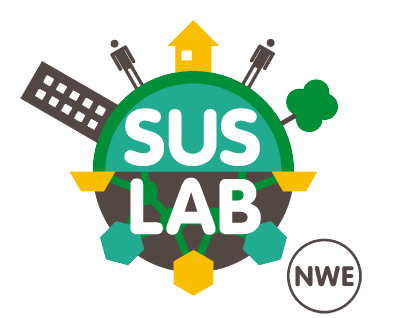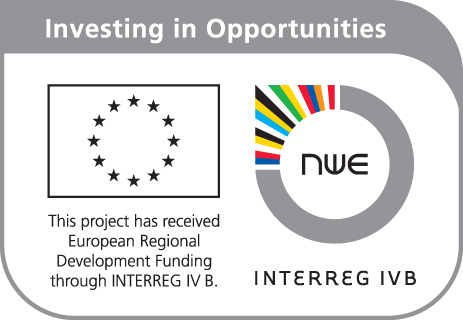Projects
SusLabNWE
Institute's role: Project partner and UK pilot lead.jpg)
Background: The Institute was working in partnership with the Greater London Authority (GLA) to deliver a sustainable 'living laboratory' on the London Sustainable Industries Park (London SIP), East London. Along with the Royal College of Art (RCA), Imperial College London and Climate Energy Homes, the Institute procured the living laboratory facility to look and behave like a residential property in order to test user interaction with energy and water efficiency innovations. The information was gathered from testing to better understand how people interact with technology and provide appliance manufacturers, designers, utilities and control technology companies with a unique facility for testing and developing solutions for residential properties.
This activity was part of a pan European project to set up a network of ‘living laboratories’ for researching technology-user interface interactions, and proto-typing user-centred sustainable innovations in ‘real-life’ home environments. Pilots were planned in Germany, the Netherlands and Sweden, as well as the UK, to refine the design of new energy and water management systems or appliances, and support user testing.
Challenge: Domestic properties are significant users of energy and water (approximately 28 percent of the UK’s total energy consumption Department of Energy and Climate Change - accessed on 8 August 2013). As global demand for and the cost of resources increases, finding alternative ways to understand and reduce consumption is becoming more important. While technology plays an important role, if occupants are not engaged with or struggle to use technology, or if data is not accurate and reliable, potential savings will not be realised.
Activity: In the UK, the project focus was the user interface design for energy and water monitors and control systems. A single dwelling laboratory facility at the London SIP was built – on the same site as the Institute’s Cradle to Cradle demonstrator, and it was launched in February 2015. Photos from the event are available here.
The Institute worked with a variety of stakeholders to identify volunteers to participate in testing and facilitate demonstration opportunities with business partners.
Proposed activity at the laboratory built on energy monitoring being undertaken by Imperial College as part of the Ofgem funded Low Carbon London initiative. The learning gathered contributed to further research and proto-type testing programmes. Imperial College London led on quantitative analysis and the RCA on the qualitative and ethnographic/behavioural studies.
Partners: The SusLabNWE project was led by TU Delft (the Netherlands) and delivered with 12 public, private and academic partners across the United Kingdom, Germany, the Netherlands and Sweden.
Funders: The project was part-funded by the Interreg IVB NWE Programme.
Further information: For more information on SusLabNWE click here.


